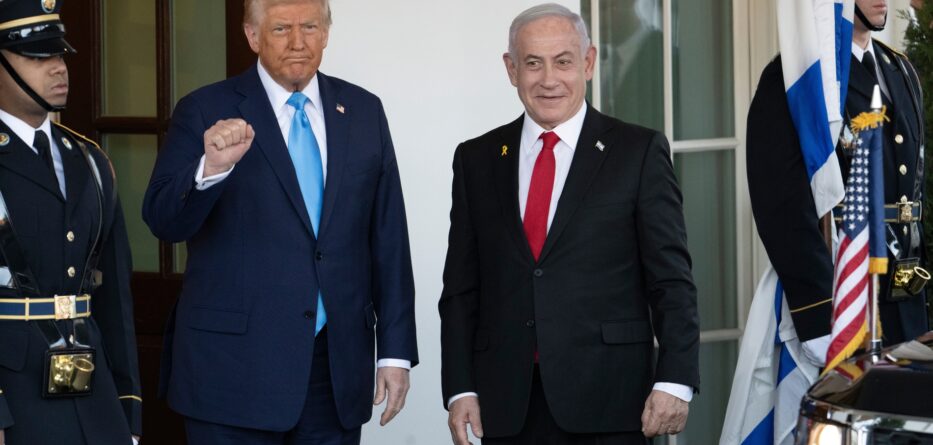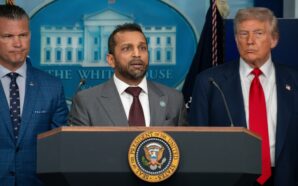
Is Israel Really Our Ally?
Israel’s airstrikes on Doha, Qatar, on September 9, 2025, didn’t just eliminate a meeting of Hamas leaders—they may have destabilized America’s already fragile Middle East alliances. By bombing the capital of a nation hosting thousands of U.S. troops at Al Udeid Air Base, Israel has put the U.S. in a precarious position. Was this a calculated move to force America’s hand, or is Washington complicit in a reckless action that could spark a new war?
Qatar: From Peacemaker to Pawn?
For years, Qatar has balanced diplomacy and power, hosting Hamas’s political leadership since 2012 while deepening ties with the U.S. through Al Udeid and even gifting a $400 million Boeing 747-8 for Trump’s new Air Force One in May 2025. That gesture, once seen as goodwill, now looks like a betrayal after Israeli jets—reportedly refueled with U.S. assistance—hit Doha, killing a civilian and five Hamas members. The strike targeted a Hamas meeting about a U.S.-backed ceasefire, fueling speculation of a setup. Qatar’s Prime Minister Sheikh Mohammed bin Abdulrahman al-Thani condemned the strike as a heinous violation and promised consequences.
America’s Dirty Hands
Israel didn’t act alone. Reports suggest U.S. intelligence and mid-air refueling played a role. The White House admitted it was informed, yet Trump’s response was weak, calling Qatar a “close ally” while avoiding accountability. Critics accuse the administration of collusion, while supporters frame the strike as a decisive blow against Hamas leaders. Rep. Ilhan Omar labeled it a war crime that sabotaged ceasefire talks, while public reactions remain divided between cheering boldness and warning of disaster.
Qatar’s Gift and America’s Betrayal
The $400 million jet Qatar gave the U.S. now appears less like a gift and more like a liability. Watchdogs flagged it as a conflict of interest even before this crisis, and now it’s a diplomatic embarrassment. Trump, who once complained the plane was “too big,” may regret accepting it. Qatar could retaliate by expelling U.S. troops, freezing mediation efforts, or aligning with rivals like Iran or Turkey.
War Drums or Just Posturing?
This isn’t only about Qatar. Israel has escalated strikes in Syria, Lebanon, Yemen, and Iran, often with U.S. support. But Doha is different—it’s a U.S. ally and a Gulf stability anchor. Attacking it risks fracturing America’s regional alliances. Analysts warn of a domino effect if Qatar distances itself, Gulf states lose faith in U.S. reliability, and Iran takes advantage of the turmoil. Al Jazeera reports global backlash, with Qatar’s emir demanding Trump rein in Israel.
Bottom Line
By targeting Doha, Israel has forced America into a corner: back Israel’s actions or salvage ties with Qatar. With the Middle East already a tinderbox, this strike risks igniting a wider conflict and eroding U.S. credibility. The pressing question isn’t just what Qatar does next, but whether the U.S. can stop Israel from drawing it into a war it can’t afford.
-
Credit: Shutterstock The world of film, television, and political activism is reeling from the sudden and devastating news of...
-
Credit: Shutterstock Europe is feeling the chill of more than just winter weather, as a potent strain of flu,...
-
Credit: Shutterstock JPMorgan Chase CEO Jamie Dimon delivered an unusually direct rebuttal this week after Trump Media & Technology...
-
Credit: Shutterstock In a pivotal moment for global diplomacy, Russian President Vladimir Putin is set to meet U.S. special...
-
Credit: Shutterstock A shocking new 115-page report has peeled back the curtain on life inside the FBI under Director...
-
Credit: Shutterstock Udaipur witnessed a glittering fusion of Hollywood, Bollywood, and high society this week as global icon Jennifer...
-
Credit: Shutterstock Bay Area residents who recently glanced up over the Golden Gate Bridge were treated to an unexpected...
-
Credit: Shutterstock Following a horrifying road accident involving Umrah pilgrims on the Mecca–Madinah highway late Sunday night, India is...
-
Credit: Shutterstock As President Donald Trump abruptly turned against Rep. Marjorie Taylor Greene, one of his most vocal supporters,...
-
Credit: Shutterstock The world is reeling from the irony this week after reports confirmed that over 100,000 trees were...
-
Credit: Shutterstock In a dramatic twist that’s sent shockwaves through both sides of the Atlantic, U.S. President Donald Trump...
-
Credit: Shutterstock As Hurricane Melissa tore across the Atlantic, shattering records and testing the limits of modern aircraft, a...




















